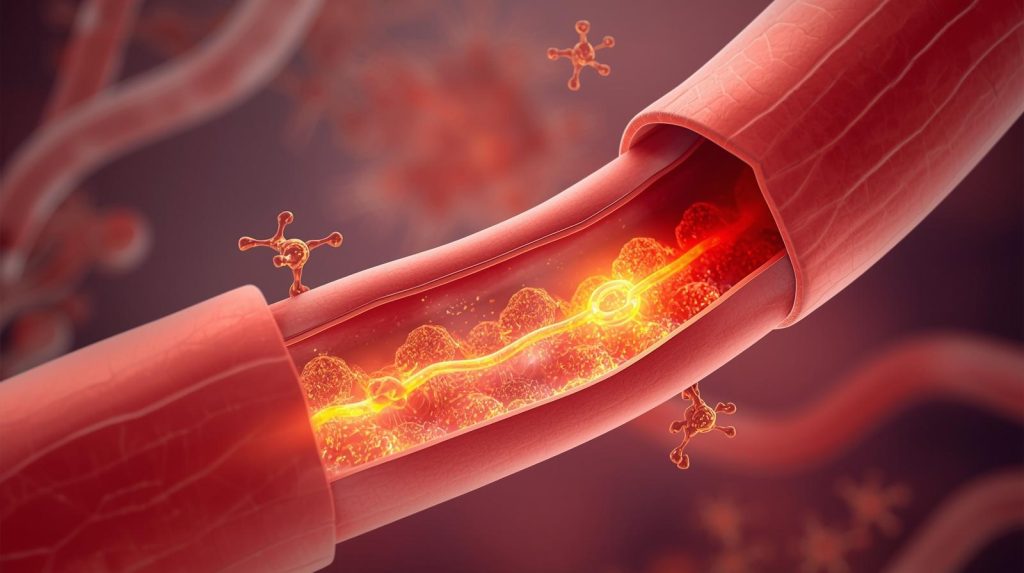The Silent Killer and a Microbial Clue
Cardiovascular disease remains the world’s leading cause of death, with atherosclerosis—the hardening and narrowing of arteries—at its core. Despite cholesterol-lowering drugs and anti-inflammatory therapies, many patients still suffer heart attacks and strokes. This “residual risk” has long puzzled scientists.
Now, a Nature study reveals a surprising culprit: imidazole propionate (ImP), a metabolite produced by gut bacteria.
From Gut Microbes to Arteries
Researchers discovered that high levels of ImP were strongly associated with subclinical and active atherosclerosis in both mice and large human cohorts. Strikingly, simply giving ImP to mice was enough to trigger atherosclerosis—without raising cholesterol levels.
Instead, ImP acted by activating the immune system and driving vascular inflammation, creating a fertile ground for artery-clogging plaques.
The ImP–I1R Pathway: A New Therapeutic Target
Digging deeper, scientists found that ImP signals through the imidazoline-1 receptor (I1R) on immune cells. Blocking this ImP–I1R axis in mice:
- Prevented plaque formation,
- Reduced vascular inflammation, and
- Stopped disease progression—even under a high-cholesterol diet.
This suggests a cholesterol-independent therapeutic strategy for heart disease.
Diet, Microbiome, and Risk
The study also linked ImP levels to diet and gut microbiome composition. Diets rich in Mediterranean foods correlated with lower ImP, while unfavorable microbial shifts promoted its production. This opens the door to personalized nutrition and microbiome-based interventions.
Why It Matters
Identifying ImP as a microbial driver of atherosclerosis reshapes our understanding of heart disease. It highlights:
- The gut–heart axis,
- The potential of new biomarkers for early detection, and
- Innovative therapies that go beyond cholesterol control.
With millions still at risk despite statins and blood pressure drugs, targeting ImP could mark a turning point in cardiovascular medicine.
Key Takeaway: Imidazole propionate isn’t just a gut metabolite—it’s a hidden instigator of atherosclerosis. By blocking its pathway, we may finally close the gap in preventing heart disease.
Reference
Mastrangelo, A., Robles-Vera, I., Mañanes, D., Galán, M., Femenía-Muiña, M., Redondo-Urzainqui, A., … & Sancho, D. (2025). Imidazole propionate is a driver and therapeutic target in atherosclerosis. Nature, 1-8. https://doi.org/10.1038/s41586-025-09263-w







